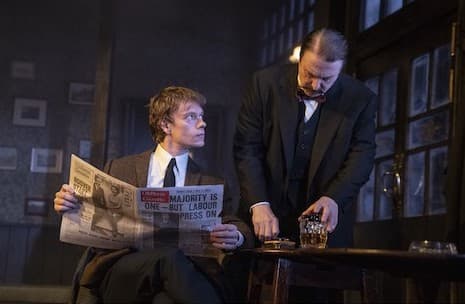
Clintons To Be Deposed in Hometown of Chappaqua Rather Than on Capitol Hill
By MATTHEW RICE
|Director Matthew Dunster does a masterful job conducting his lavishly talented ensemble so that each member of this motley crew is duly served.

Already have a subscription? Sign in to continue reading

By MATTHEW RICE
|
By MATTHEW RICE
|
By TOM TEODORCZUK
|$0.01/day for 60 days
Cancel anytime
By continuing you agree to our Privacy Policy and Terms of Service.